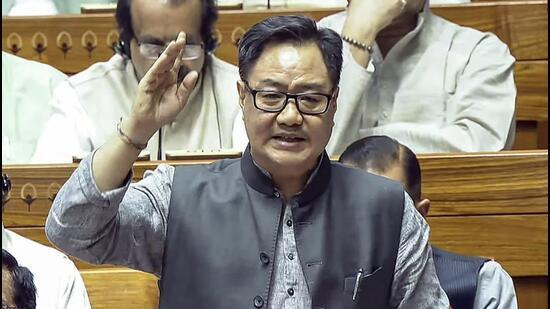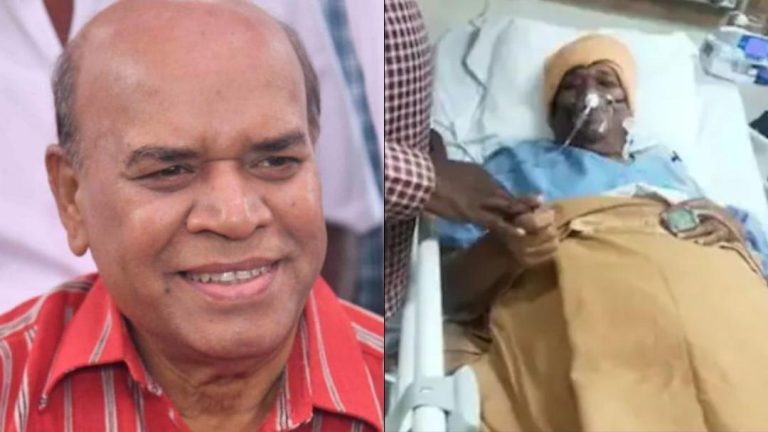
Opposition Creates Confusion & Leaves House: Rijiju in Rajya Sabha
The Union Minister for Youth Affairs and Sports, Kiren Rijiju, recently criticized senior Rajya Sabha members for creating confusion and raising issues in the House but not staying back to listen to the replies. Rijiju made these remarks during a discussion on the Waqf (Amendment) Bill, which has been a topic of controversy in recent times.
The Waqf Amendment Bill aims to amend the Waqf Act, 1995, and allow the government to appoint non-Muslims to the Waqf Board, which manages properties belonging to Muslim communities. The bill has been met with opposition from various Muslim groups, who argue that it is an attempt to dilute the authority of the Waqf Board.
During the discussion on the bill, senior Rajya Sabha member Kapil Sibal raised a point of order, comparing the properties of Waqf bodies with those of other religious bodies. Rijiju, in response, criticized Sibal for creating confusion and not staying back to listen to the replies.
“Senior members are creating confusion in the House and then leaving. Kapil Sibal, for instance, raised a point of order and then left the House,” Rijiju said, according to sources.
Rijiju’s remarks come at a time when the opposition is already critical of the government’s handling of the Waqf Amendment Bill. The opposition parties have accused the government of trying to undermine the autonomy of the Waqf Board and manipulate the properties of Muslim communities for political gains.
The opposition’s criticism has been fueled by the government’s decision to appoint a non-Muslim as the chairperson of the Waqf Board in Uttar Pradesh. The move has been seen as an attempt to dilute the authority of the Waqf Board and pave the way for the government to take control of the properties.
The Waqf Amendment Bill has also been criticized by various Muslim groups, who argue that it is an attempt to undermine the autonomy of the Waqf Board and the rights of Muslim communities. The bill has been seen as a move to further polarize the country along religious lines and undermine the secular fabric of Indian society.
In response to Rijiju’s criticism, Sibal defended his actions, saying that he had raised a point of order to seek clarification on the bill and had left the House because he had already made his point. Sibal also accused Rijiju of trying to suppress the opposition’s views and silence their criticism of the government’s handling of the Waqf Amendment Bill.
The debate over the Waqf Amendment Bill is a reflection of the deep divisions that exist in Indian society. The bill has been seen as a move to further polarize the country along religious lines and undermine the secular fabric of Indian society.
In conclusion, the opposition’s criticism of the government’s handling of the Waqf Amendment Bill has created confusion and led to a heated debate in the Rajya Sabha. The bill has been seen as an attempt to undermine the autonomy of the Waqf Board and the rights of Muslim communities. The government’s decision to appoint a non-Muslim as the chairperson of the Waqf Board in Uttar Pradesh has been seen as an attempt to dilute the authority of the Waqf Board and pave the way for the government to take control of the properties.
The debate over the Waqf Amendment Bill is a reflection of the deep divisions that exist in Indian society. The bill has been seen as a move to further polarize the country along religious lines and undermine the secular fabric of Indian society.






